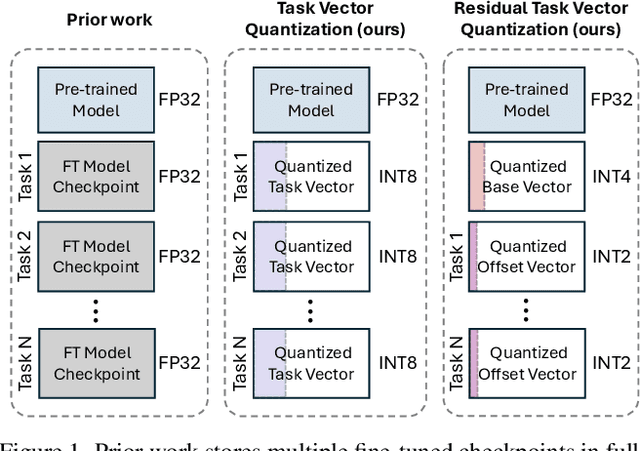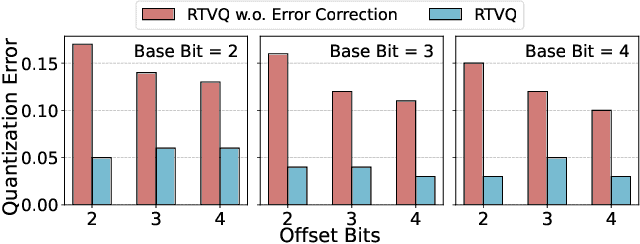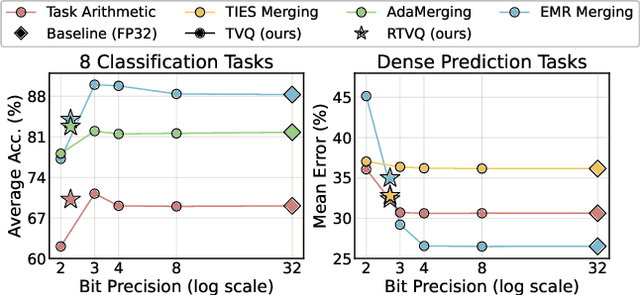Task Vector Quantization for Memory-Efficient Model Merging
Paper and Code
Mar 10, 2025



Model merging enables efficient multi-task models by combining task-specific fine-tuned checkpoints. However, storing multiple task-specific checkpoints requires significant memory, limiting scalability and restricting model merging to larger models and diverse tasks. In this paper, we propose quantizing task vectors (i.e., the difference between pre-trained and fine-tuned checkpoints) instead of quantizing fine-tuned checkpoints. We observe that task vectors exhibit a narrow weight range, enabling low precision quantization (up to 4 bit) within existing task vector merging frameworks. To further mitigate quantization errors within ultra-low bit precision (e.g., 2 bit), we introduce Residual Task Vector Quantization, which decomposes the task vector into a base vector and offset component. We allocate bits based on quantization sensitivity, ensuring precision while minimizing error within a memory budget. Experiments on image classification and dense prediction show our method maintains or improves model merging performance while using only 8% of the memory required for full-precision checkpoints.
 Add to Chrome
Add to Chrome Add to Firefox
Add to Firefox Add to Edge
Add to Edge